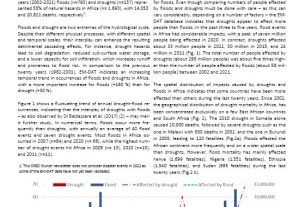The recent sentencing of 19-year-old Cameron Finnigan to six years in prison, with an extended three-year license period, has shed light on the dangerous intersection of neo-Nazi ideology, satanic extremism, and the vulnerability of young individuals online. Finnigan’s case, heard at the Old Bailey, serves as a stark reminder of the insidious nature of online radicalization and its devastating real-world consequences.
Finnigan’s descent into extremism began in late 2023 when he joined 764, a satanic extremist group with ties to the notorious Order of Nine Angles, a Nazi occultist organization known for promoting violence and terror. Operating primarily through social media platforms like Telegram, Discord, and Snapchat, Finnigan, under the username “ACID” and using the coded PIN “1969” – a reference to the publication date of the Satanic Bible – actively engaged with other members of the group. This online environment, characterized by anonymity and a shared extremist worldview, appears to have provided fertile ground for his radicalization.
The case highlights the concerning trend of young people getting entangled in extremist ideologies online. Finnigan’s autism, while not directly causal, may have made him more susceptible to the allure of belonging and the promise of purpose offered by groups like 764. His online communications reveal a deeply troubling trajectory: from encouraging a vulnerable young girl to commit suicide, even desiring it to be streamed for the group’s purposes, to expressing a specific intent to harm a homeless person. This progression underscores the radicalizing potential of online extremist communities, which can rapidly push individuals towards violence and criminal behavior.
The investigation also uncovered a disturbing collection of items in Finnigan’s home, including a large tapestry of the “Satanic Beast,” knives, and symbols of both Nazism and Satanism. A punchbag found outside his room bore testament to his violent tendencies. These findings underscore the tangible manifestation of his extremist beliefs in his personal space, painting a portrait of an individual fully immersed in his chosen ideology.
The court’s decision to sentence Finnigan to six years in prison, despite his youth, reflects the severity of his crimes. His actions, which included encouraging suicide, possessing terrorist materials, and possessing indecent images of children, were not isolated instances. They formed part of a pattern of behaviour that demonstrated his commitment to extreme violence. His explicit intention to target a homeless person, a profoundly vulnerable member of society, further underscores the callous and dehumanizing nature of his beliefs.
The case raises significant questions about the role of online platforms in preventing the spread of extremist material and protecting vulnerable users. While law enforcement can bring offenders like Finnigan to justice, the sheer volume of online spaces where these ideologies fester presents a considerable challenge. There is a definite need for a multi-faceted approach that combines robust law enforcement with increased awareness, education, and proactive interventions on social media platforms. This not only includes removing hateful content but also promoting critical thinking and developing strategies for counter-messaging.
The case also underscores the need for vigilance and support for vulnerable individuals who may be susceptible to radicalization. Early intervention and access to mental health resources can be crucial in preventing individuals from falling into the trap of extremism. The importance of fostering a society that values inclusivity and critical thinking cannot be overstated.
Cameron Finnigan’s story is a cautionary tale. It is a reminder that online extremism is not an abstract threat; it poses very real dangers to individuals and society as a whole. By understanding the processes of radicalization and the vulnerabilities that can be exploited, we can begin to develop effective strategies to combat this growing problem and protect the most vulnerable members of our communities from falling prey to hateful ideologies.
Pictue by vector_corp on Freepik



